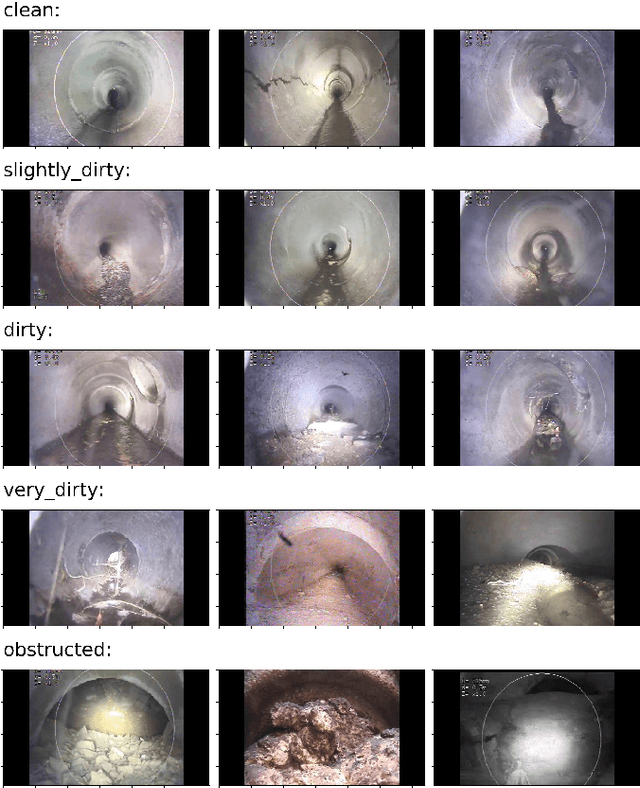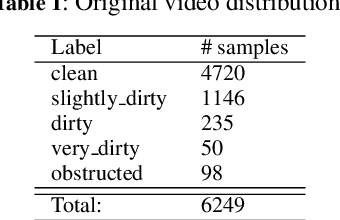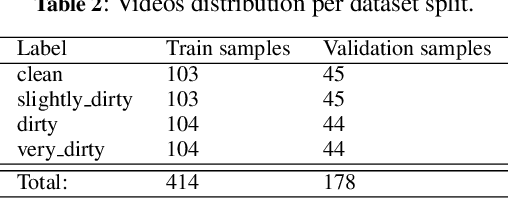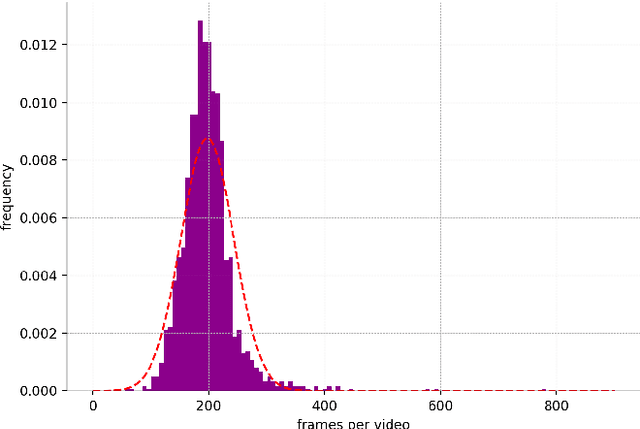Mario A. Gutierrez-Mondragon
Obstruction level detection of sewer videos using convolutional neural networks
Feb 04, 2020



Abstract:Worldwide, sewer networks are designed to transport wastewater to a centralized treatment plant to be treated and returned to the environment. This process is critical for the current society, preventing waterborne illnesses, providing safe drinking water and enhancing general sanitation. To keep a sewer network perfectly operational, sampling inspections are performed constantly to identify obstructions. Typically, a Closed-Circuit Television system is used to record the inside of pipes and report the obstruction level, which may trigger a cleaning operative. Currently, the obstruction level assessment is done manually, which is time-consuming and inconsistent. In this work, we design a methodology to train a Convolutional Neural Network for identifying the level of obstruction in pipes, thus reducing the human effort required on such a frequent and repetitive task. We gathered a database of videos that are explored and adapted to generate useful frames to fed into the model. Our resulting classifier obtains deployment ready performances. To validate the consistency of the approach and its industrial applicability, we integrate the Layer-wise Relevance Propagation explainability technique, which enables us to further understand the behavior of the neural network for this task. In the end, the proposed system can provide higher speed, accuracy, and consistency in the process of sewer examination. Our analysis also uncovers some guidelines on how to further improve the quality of the data gathering methodology.
 Add to Chrome
Add to Chrome Add to Firefox
Add to Firefox Add to Edge
Add to Edge